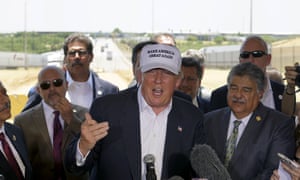Thursday, March 3, 2016
Trump dominates with huge turnouts, wide base of support
Wednesday, March 2, 2016
Roger Stone Launches Pro-Trump Super PAC to Defeat Rubio
Listen to Military Veteran Talk Radio iHeart.SmythRadio.com
AP
by PATRICK HOWLEY17 Dec 2015404
Legendary political operative Roger Stone is launching a super PAC to support Republican presidential frontrunner Donald Trump by bludgeoning Trump’s establishment rivals.
The Committee to Restore America’s Greatness, chaired by Stone and already cleared with the Federal Election Commission, is taking dead aim at SenatorSen. Marco Rubio (R-FL).
“It is an effort to educate the voters in the early primary states about the establishment candidates who may be challenging Donald Trump for the nomination,” Stone told Breitbart News. “We’re focusing specifically on Marco Rubio, but it could also conceivably be Chris Christie.”
Stone, who formally resigned from the Trump campaign in August, met Trump at a Ronald Reagan campaign event decades ago and led his exploratory committee during Trump’s shortlived run for the Reform Party nomination in 2000. The veteran political trickster is making it clear that he intends to go for the jugular.
“TV and cable is certainly the most effective” method for getting anti-Rubio information out to the voters, Stone said. “If we raise more, perhaps we’ll do broadcast TV.”
“We specifically are not going to take corporate or lobbyist money because I think that corrupts the political process,” Stone added, noting that his PAC wants small-dollar donations and that it has not and will not coordinate with Trump in any way.
But as for Trump-style putdowns of his weak-kneed competitors? Stone thinks it’s fair game.
“The donor class of the Republican Party is shocked at how easily Donald Trump ended the viable candidacy of former Governor Jeb Bush,” Stone explains in his introductory email announcing the PAC. “Jeb was supposed to be the anointed one, and all the other candidates were expected to drop out of the race to make way for the restoration of the ‘House of Bush.’ But Trump branding Jeb as ‘low energy’ and a ‘stiff’ was the beginning of the end of his candidacy. He is now in 5th place.”
With Bush knocked to the sidelines, Stone thinks it’s time to go after Rubio, who has picked up the support of Republican donor heavyweight Paul Singer and is angling for the endorsement of billionaire Sheldon Adelson.
Stone identified Rubio’s support for the Gang of 8 amnesty bill, for President Obama’s Trans-Pacific Partnership deal with East Asian countries, and his support for importing Syrian refugees as the issues that make him “the Establishment’s Water Boy.”
“Rubio’s campaign slogan is ‘A New American Century,” Stone said. “But make no mistake, Rubio’s New America is the wet dream of the crooked lobbyists, Wall Street billionaires and special interests.”
Read More Stories About:
Trump: Paul Ryan Will Get Along Well With Me Or ‘He’s Gonna Have To Pay A Big Price.’
John Moore/Getty Images
by MICHELLE FIELDS2 Mar 2016973
PALM BEACH, FLORIDA— Republican presidential candidate Donald Trump says he and Rep. Paul Ryan (R-WI)will get along well if he becomes president.
Speaking from the white and gold ballroom at his Mar-A-Lago resort, Trump said that there will be consequences for Ryan if the Speaker chooses not to get along with him if he becomes president.
“I’m going to get along great with Congress, Okay? Paul Ryan, I don’t know him well, but I’m sure I’m going to get along great with him, and if I don’t– he’s gonna have to pay a big price.”
Ryan went after Trump this week and challenged Trump to reject groups like the Ku Klux Klan, who have expressed support for his presidential candidacy.
“When I see something that runs counter to who we are as a party and as a country, I will speak up, so today I want to be very clear about something,” Ryan said. “If a person wants to be the nominee of the Republican Party, there can be no evasion and no games…they must reject any group or cause that is built on bigotry. This party does not prey on people’s prejudices. We appeal to their highest ideals…. This is fundamental. And if someone wants to be our nominee, they must understand this.”
Senator Majority Leader Sen. Mitch McConnell (R-KY) also blasted Trump this week.
“There has been a lot of talk in the last 24 hours about one of our presidential candidates and his seeming ambivalence about David Duke and the KKK, so let me make it perfectly clear,” McConnell said. “That is not the view of Republicans who have been elected to the United States Senate, and I condemn his views in the most forceful way.”
Read More Stories About:
Big Government, 2016 Presidential Race,Donald Trump, Paul Ryan, Mitch McConnell
Kristol Lays Out Strategy to Give White House to Hillary: Trump ‘Shouldn’t Win’
JOE SCARBOROUGH: The fact of the matter is that you know there is no historical precedent with someone doing as well as Candidate Trump did yesterday — winning New Hampshire, South Carolina and Nevada, [losing the nomination] has never happened before, and as you know there is a momentum, a forward progress–BILL KRISTOL: Right, so we have to stop the momentum, I totally agree.SCARBOROUGH: So that’s my question. There’s no cheering here. I am looking at facts.KRISTOL: To your credit, you have correctly seen that this was not going to be the historically normal year, and it’s not, so maybe we go–SCARBOROUGH: So how do you beat him?KRISTOL: You have to beat him in Florida and Ohio, the first two winner-take-all states, which means there has to be a de facto agreement between the opposition candidates — between the resistance to Trump, which I am proud to be a part of, because I think he’d be a terrible nominee and a terrible president…SCARBOROUGH: You have the authority to broker that deal right now?KRISTOL: Well, they need to. They need to defer to Rubio in Florida and probably to Kasich in Ohio, and say, or imply, that if you are a Cruz voter in Ohio, and if you look up the day before the primary and it’s Trump 42%, Kasich 35% — vote for Kasich. And the truth is if Trump doesn’t win Florida and Ohio, it remains very much of an open race. …Donald Trump [so far] has 35% of the popular vote and 47% of the delegates. That’s a lot better than having 24% of the popular vote and 25% of the delegates, granted. …JOHN HEILEMANN: Just to go a little further on this topic of what Bill’s advocating: As you talk more and more to Republicans, who will say to you privately and sometimes publicly, that they would rather vote for Hillary Clinton than for Donald Trump, [these are the] people who are going to try to stop him — their attitude is: We know that would happen at a contested convention if we took the nomination away from a Donald Trump [who has won through] a plurality of delegates.What would happen is that we would likely alienate his supporters and we would likely lose the presidential election. But their position is that it would be better for us to lose the [general] election than to have Donald Trump tear the Party in half as the nominee.Now you can say that’s suicidal, but that is the posture of people [worried] about the negative effects down ballot.KRISTOL: And [Trump] would still lose the election. And shouldn’t win the election, So, yeah, I agree.
This is a good time to ask where this scorch-earthed mentality was when America needed it most to stop Barack Obama in 2008 and 2012.
Trump dominates in Texas border town where proposed wall would be built
 Donald Trump’s motorcade arrives near the US-Mexico border, outside Laredo, Texas, in July. Photograph: Rick Wilking/Reuters
Donald Trump’s motorcade arrives near the US-Mexico border, outside Laredo, Texas, in July. Photograph: Rick Wilking/Reuters Bilingual signs in English and Spanish with information at the Laredo, Texas, port of entry from Mexico. Photograph: Alamy
Bilingual signs in English and Spanish with information at the Laredo, Texas, port of entry from Mexico. Photograph: AlamyDaily Beast Ignored These GOP Establishment Tweets **Content Warning**
Listen to Military Veteran Talk Radio iHeart.SmythRadio.com
by JOHN NOLTE1 Mar 20161112
****Warning: Vile Sexual Content****
—
Smears
Threats
Smears
Attacks on Breitbart Readers
Smears
No comment necessary
This single tweet below is the only one The Daily Beast mentioned.
Attacks on their own voters as stupid
—
Read More Stories About:
Big Government, Twitter, 2016 Presidential Race, GOP Establishment, The Daily Beast,Rick Wilson
Jake Tapper Asks Spinning Marco Rubio: Are You In Denial?
Tapper: Senator, you keep saying that, and [Trump] keeps winning states, and you’re talking about Virginia and that’s another state that Donald Trump won. I’m wondering if there’s a certain amount of denial that you’re in about this race.Rubio: No, Jake. We’re in the winner-take-all phase of this. Up you know this is about delegate count. You know in a usual race you’d have a front-runner and people would be saying you need to drop out and rally around the front-runner. What people are saying is fight as hard as you can…
After the interview Tapper said, “Call it determination, call it denial — Senator Marco Rubio.”
